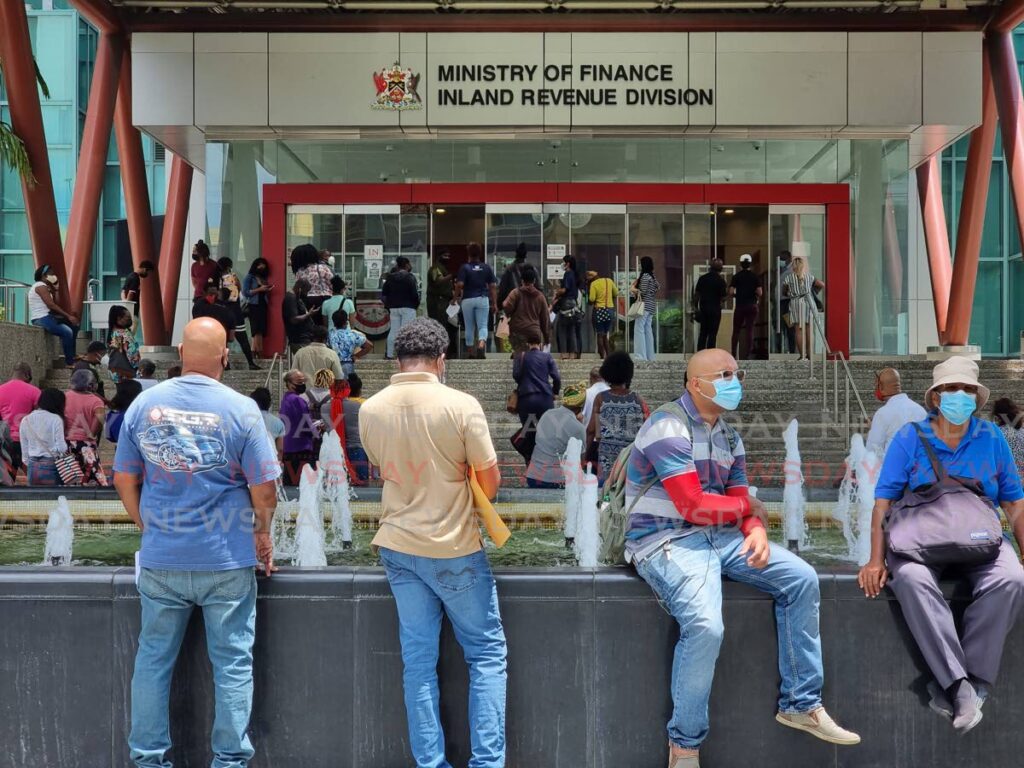Appeal Court gives Revenue Authority green light

THE Court of Appeal has again ruled against stopping the Government from progressing with the operationalisation of the Trinidad and Tobago Revenue Authority (TTRA).
In a unanimous decision on May 28, Justices of Appeal Nolan Bereaux, Charmaine Pemberton, and Mira Dean-Armorer dismissed the challenge of the Public Services Association (PSA) through one of its members, Terrisa Dhoray, a customs officer.
The Revenue Authority Act was proclaimed with an effective date of May 1, 2023, and was scheduled to take effect on August 1, 2023.
However, Dhoray challenged the lawfulness of the authority. The lawsuit specifically focused on Section 18 of the legislation, which President Christine Kangaloo proclaimed on April 24, 2023.
Initially, the deadline to do so was July 31, 2023, but there were at least four extensions, with the last, on April 30, extending the deadline to June 3.
Finance Minister Colm Imbert posted about the court’s ruling on X (formerly Twitter) at 12.54 pm on May 28.
“The Court of Appeal just ruled unanimously that the TT Revenue Act is valid and constitutional and does not breach the constitutional rights of public officers. We can now move swiftly to improve and maximise revenue collection for the benefit of all our citizens.”
In the lawsuit, Dhoray challenged the constitutional validity of the Revenue Act 2021. Dhoray contended that certain segments of the legislation were unconstitutional as they sought to interfere with the terms and conditions of employment of public servants currently assigned to the Customs and Excise Division and Inland Revenue Division (IRD).
Dhoray also claimed the Government did not have the power to delegate its tax-revenue-collection duties.
The section gives public servants three months to decide on their future employment on the operationalisation of the TTRA.
Those affected have the choice to resign from the public service, accept a transfer to the TTRA, or be transferred to another office in the public service.
On November 17, 2023, High Court judge Westmin James dismissed the case, ruling that tax collection was not a core governmental function that was non-delegable.
James said the TTRA was “meant to be a semi-autonomous revenue authority.”
On May 28, in their unanimous decision, the Appeal Court judges agreed.
Justice Dean-Armorer delivered the ruling, while Bereaux shared his views on the issues raised, particularly on the issue of “core governmental functions.”
They ruled it was permissible for the stages of assessment and collection of taxes to be treated separately from the stage of enforcement.
“We hold the view that the functions of assessment and collection are not core functions and there was no constitutional infringement by their being delegated to the Revenue Authority.”
They also ruled the officers of the Enforcement Division of the IRD remain subject to the purview of the Public Service Commission.
Dean-Armorer added, “This court does not make light of the serious socio-economic issues that have emerged from the evidence which was set out before the judge. In this appeal, however, as in the claim before the judge, the issues of policy do not arise.
“The court is concerned only with the constitutional validity of the act.”
Bereaux said he found it unnecessary to “lay down any definitive test of what amounts to a ‘core power.’
“The power to impose a tax is a legislative power wielded by simple majority. That power to impose a tax has not been devolved or transferred by the TTRA Act to an executive agency. It remains with the legislature.
“Thus, the core power of Parliament to impose a tax remains inviolate.”
He said Dhoray’s case was that taxation was an indivisible executive function. However, Bereaux said James was correct to separate the enforcement function from other elements of taxation. He also said there was divestment of the power to enforce a tax lawfully imposed by Parliament to the TTRA.
“The Enforcement Division remains under the control and direction of the Public Service Commission. It is thus not necessary to decide whether tax enforcement amounts to a core governmental power.
“ The security of tenure of those employees in the Enforcement Division is preserved.
“In that regard, the Enforcement Division is in no different a position from that which the Board of Inland Revenue and the Customs and Excise Division currently occupy.”
Bereaux added, “To say that it is those executive functions that involve the exercise of a coercive power introduces a hard-and-fast formula which is wholly unnecessary for present purposes.
“Such a question is best left to be decided on a case-by-case basis.”
In April, Parliament approved the appointment of key officials of the TTRA.
Patsy Latchman-Atterbury now becomes TTRA director general, while Helen Thomas-Brown and Riad Juman become deputy directors general, respectively for domestic tax and customs and excise.
The Opposition had expressed “deep reservations” over the appointments.
When Dhoray first filed her lawsuit in June 2023, she sought an injunction blocking the implementation pending the outcome of the lawsuit, but Justice Betsy Ann Lambert-Peterson, who was initially assigned to preside over the case, denied it. The Court of Appeal upheld her decision.
After Lambert-Peterson rejected the injunction, Dhoray applied for her to recuse herself, based on concerns raised by PSA members over the alleged friendship between her husband, Gilbert Peterson, SC, and the Prime Minister. Lambert-Peterson repeatedly rejected the link, saying she could preside impartially in the case. However, she eventually recused herself, resulting in the case being reassigned to James.
Dhoray was represented by Anand Ramlogan, SC, Jayanti Lutchmedial, Kent Samlal, Natasha Bisram, Vishaal Siewsaran and Ganesh Saroop.
The State was represented by Douglas Mendes, SC, Simon de la Bastide, Leann Thomas and Svetlana Dass.

Comments
"Appeal Court gives Revenue Authority green light"